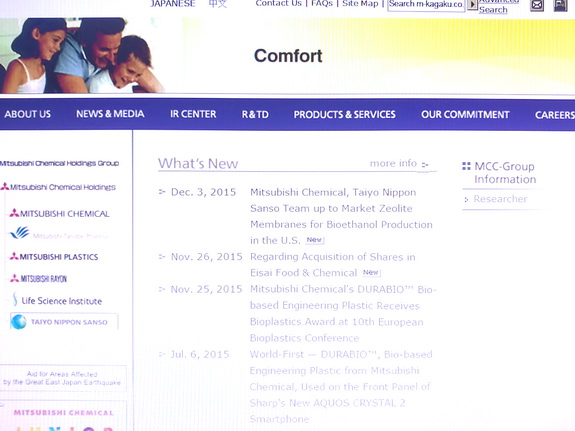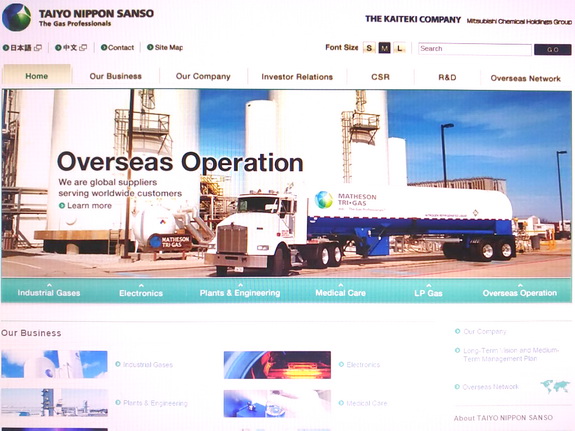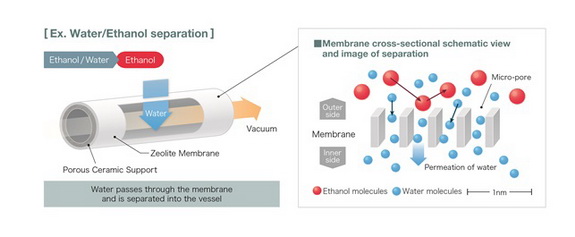3 December 2015


DETAILS

Mitsubishi Chemical Holdings Group companies
Mitsubishi Chemical Corporation and
Taiyo Nippon Sanso Corporation
today announced plans to jointly market
a dehydration system using
the MCC-developed ZEBREXTM zeolite membranes
for bioethanol production processes in the U.S
MCC provides
the zeolite membranes and modules
and its group company,
Mitsubishi Chemical Engineering Corporation,
manufactures the dehydration system.
TNSC will support marketing and business development activities
via its wholly-owned U.S. subsidiary,
Matheson Tri-Gas, Inc. (MTG).
Bioethanol is made mostly from biomass
such as sugar cane and corn. It has been become widespread
as a fuel all over the world, particularly in
the U.S. and Brazil, in step with efforts to reduce CO2 emissions
and promote the carbon neutral movement.
The U.S. now has 215 bioethanol plants in operation,
with a combined annual capacity of 50 million kl,
backed by increasing demand as a gasoline additive
due to the enactment of the 1990 revised Clean Air Act
and 2005 Energy Policy, and
more plants are slated for construction.
The bioethanol production process includes
preliminary treatment such as
pulverization of the raw materials, conversion to sugar,
fermentation, refining (distillation), and
water removal.
The raw materials have high water content,
so the distillation process in particular requires
a large facility and considerable energy.
Producers in California and other West Coast states
face high energy costs, making energy-saving processes
a critical element.

ZEBREXTM is a chabazite zeolite,
the world’s first to succeed in making zeolite into a membrane,
in which all pores are a uniform 3.8Å in size,
increasing separation capacity.
This allows higher production efficiency (Fig.1).
It also has higher water resistance compared to
conventional zeolite membranes, which allows
it to separate ethanol and isopropanol
from water in high-water-content environments
that deteriorate conventional zeolite membranes.
A dehydration system using ZEBREXTM membrane
in the bioethanol production process has the potential
to reduce energy consumption by 5% to 10%
and boost production by 10%
compared to
distillation and use of conventional zeolite membranes
now in use at many plants.
TNSC consolidated its U.S. subsidiaries
Matheson Gas Products, Inc. and Tri-Gas, Inc.
into MTG in 1999.
Through mergers and acquisitions, as well as
construction of air separation units, it established
a business network that covers the major industrial gas markets.
MCC and TNSC will draw upon that network
to develop the dehydration system
for bioethanol production processes.
WWW.CHEMWINFO.COM BY KHUN PHICHAI














